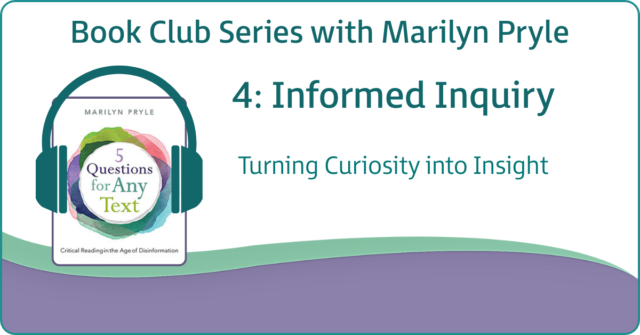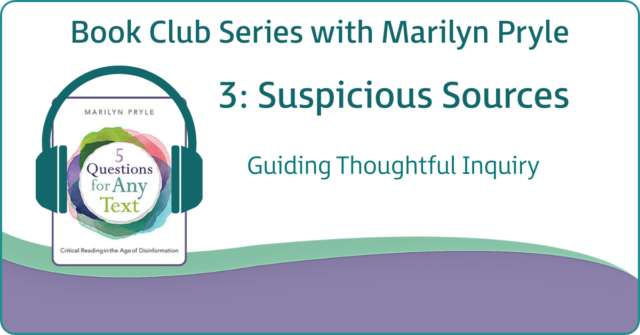
The skills of reading and thinking critically have always been a part of learning, curricula, and assessment. We want students to be able to figure things outs for themselves, to evaluate concepts and sources, to compare, contrast, and connect ideas, and to clearly articulate their thoughts. These are essential, 21st-century skills. Often, however, students will associate critical reading and thinking with test-taking or specific assignments—something they do only in school or in a certain class. They don’t see it as a life skill they will need outside of school, when they’re watching YouTube, scrolling through Instagram, or bingeing Netflix. They perceive school, and especially English class, as a siloed event, and the skills they learn within it as only academic ones needed for grades. Students leave our classrooms and leave behind the “English work” they did there.
This is insufficient now.
What is Critical Reading?
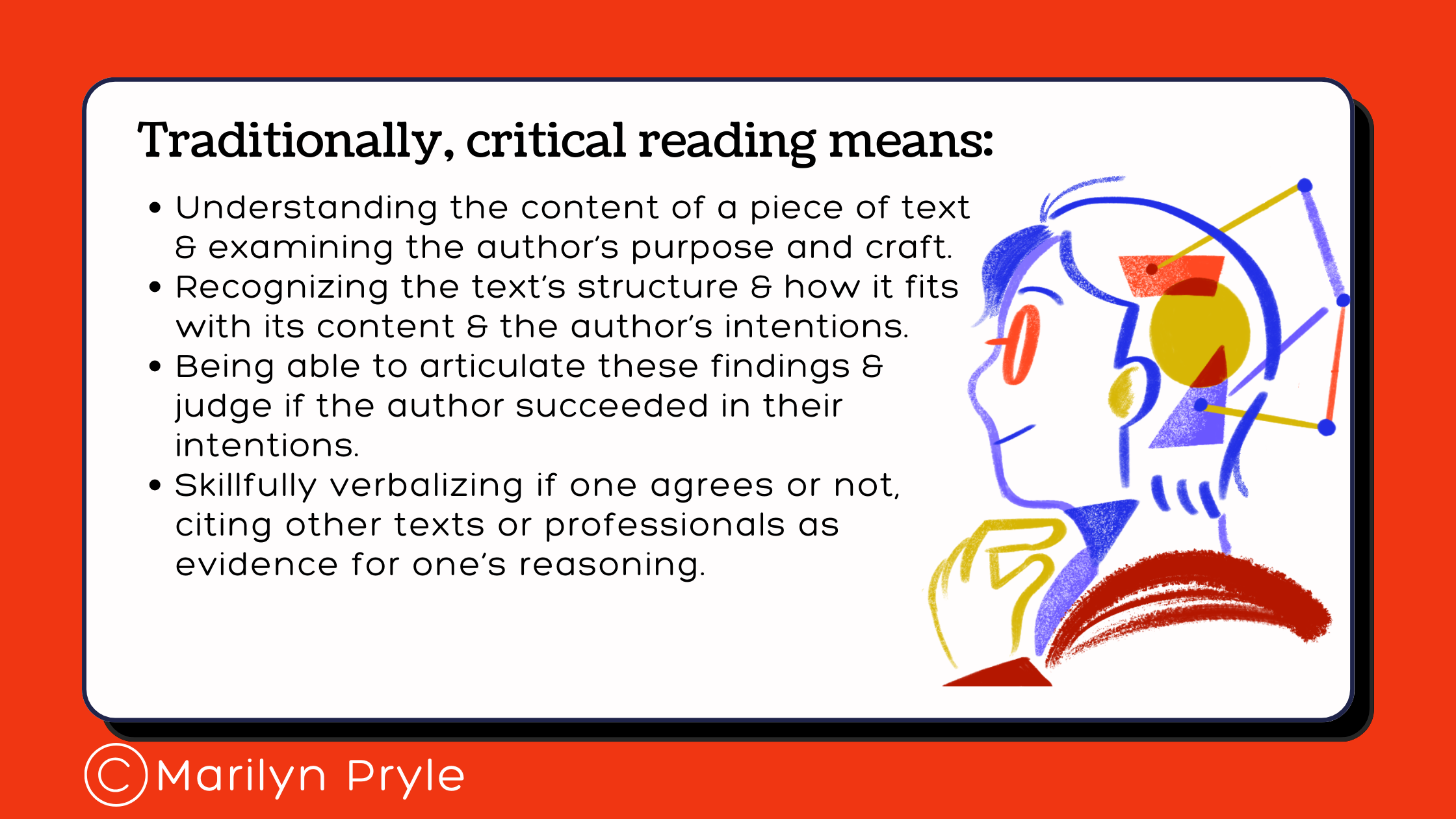
Traditionally, critical reading means understanding the content of a piece of text, and examining the author’s purpose and craft. It means recognizing the text’s structure and understanding how it fits with its content and the author’s intentions. It means being able to articulate these findings, and then judge if the author succeeded in their intentions. It means skillfully verbalizing if one agrees or not, citing other texts or professionals as evidence for one’s reasoning.
In 2024, critical reading requires even more awareness, nuance, and street-smarts. In our endless stream of infotainment on the internet, the boundaries of genre, source, and meaning are constantly blurred. What seems informational might intend to be persuasive; a human creator of a piece of content might be a foundation, and that foundation probably has a specific funder; messages are hidden; sources are suspicious. Visuals and special effects evolve daily to newly dazzle us. And behind it all, the algorithms are smarter than us, leading us (almost imperceptibly) into spaces we would not have sought out. In an election year, this means that the issues can easily get buried beneath ulterior motives, funders with agendas, and a myriad of distractions.
Somehow, we must help students develop some level of awareness and inquiry around this. We must give them practice in creating space in the moment for questioning, for pausing and considering things like a creator’s underlying purpose, the validity of a message, the power of special effects, and what the algorithm is predicting.
And I’d like to add yet another layer. Critical reading is the ability not only to read something and question its form, authenticity, and intentions, but also to name and examine one’s own feelings, perceptions, and reactions during the experience. We must go beyond the basic ideas of author’s purpose and craft—although these are always crucial to consider—and include the factor of the reader themselves. Critical reading involves knowing oneself and one’s prior knowledge, experiences, preferences, triggers, and so on. It is not just a knowledge of persuasive techniques or structural modes; it is a knowledge of the self.
The Importance of Self-Knowledge
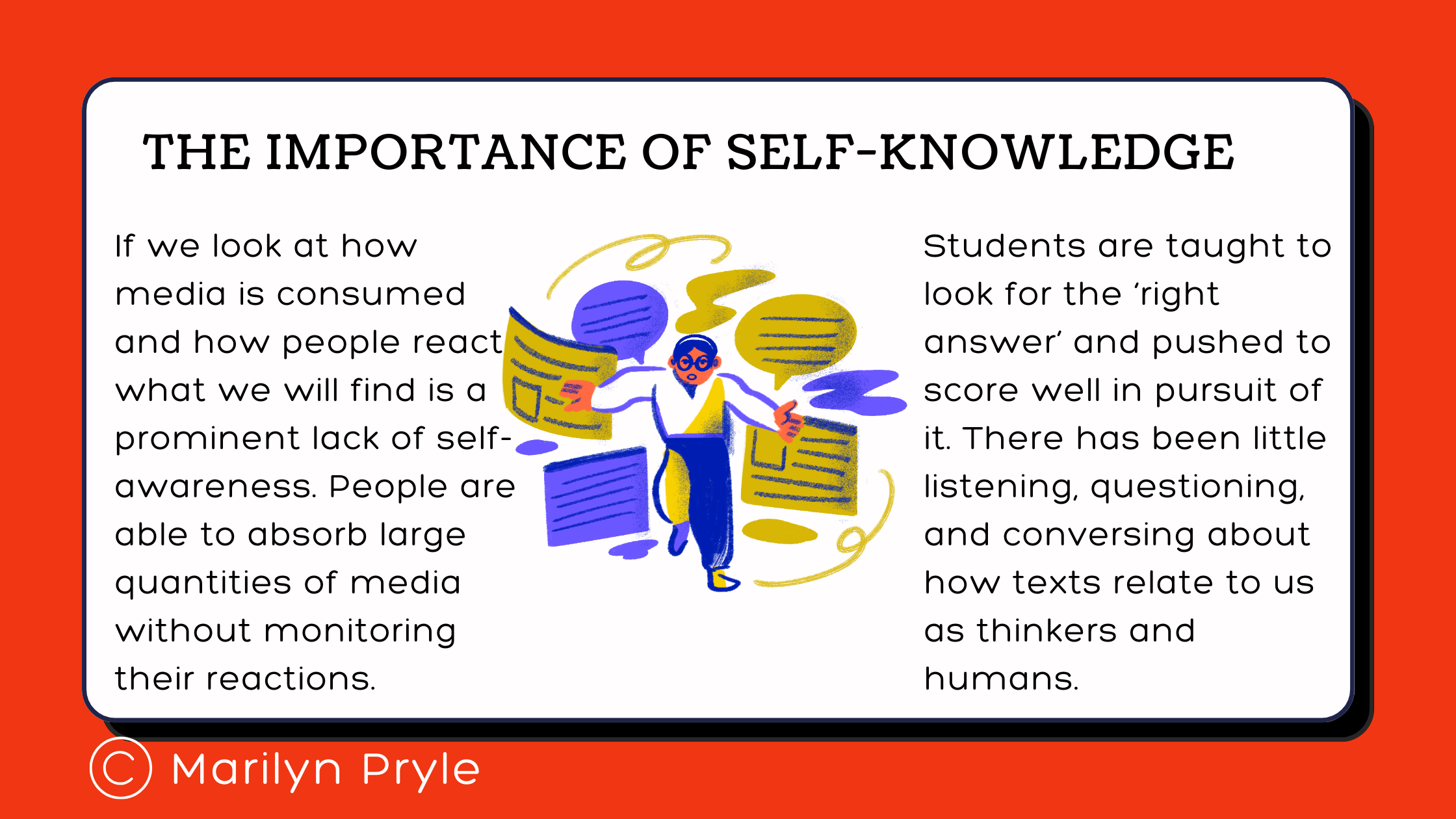
Why this emphasis on the reader? Because reality is subjective to the observer. If we look at how media is consumed and how people react, what we will find is a prominent lack of self-awareness. People are able to absorb large quantities of media—easily hundreds of pieces a day—glean the intended information, and experience the intended effects. But what they are not monitoring are their own reactions and where they’re coming from. As a result, they can easily be swept away by misinformation, disinformation, and propaganda, as we saw in the wake of the 2020 election, when refusal to accept the election’s results had disastrous consequences.
Traditionally, in school, one’s reactions are often an after-thought, an indulgent side-track to the “real” lesson. Students are instead taught to look for the “right answer” and pushed to score well in pursuit of that right answer. But what happens when children are raised to think this way? They begin to mistrust their own thoughts and instincts. They seek to defer to a professional, someone “smarter,” who can tell them the right answer, who can teach them how to think and what to think. They don’t practice genuine interactions with texts or with their peers; they don’t practice personal inquiry. The goal is to get the score, the grade, the diploma.
Look where that has left us: 20 years after NCLB and the myriad of standardized tests it spawned, we have generations of adults who have been trained to think that a “right answer” exists to the world’s complex problems. There are no grey areas, no nuance, no prior knowledge, no personal experience. For decades in schools, there has been little listening, questioning, and conversing with peers about how texts relate to us as thinkers and humans. How can we be surprised at the lack of civil discourse in 2024?
Critical Reading in 2024
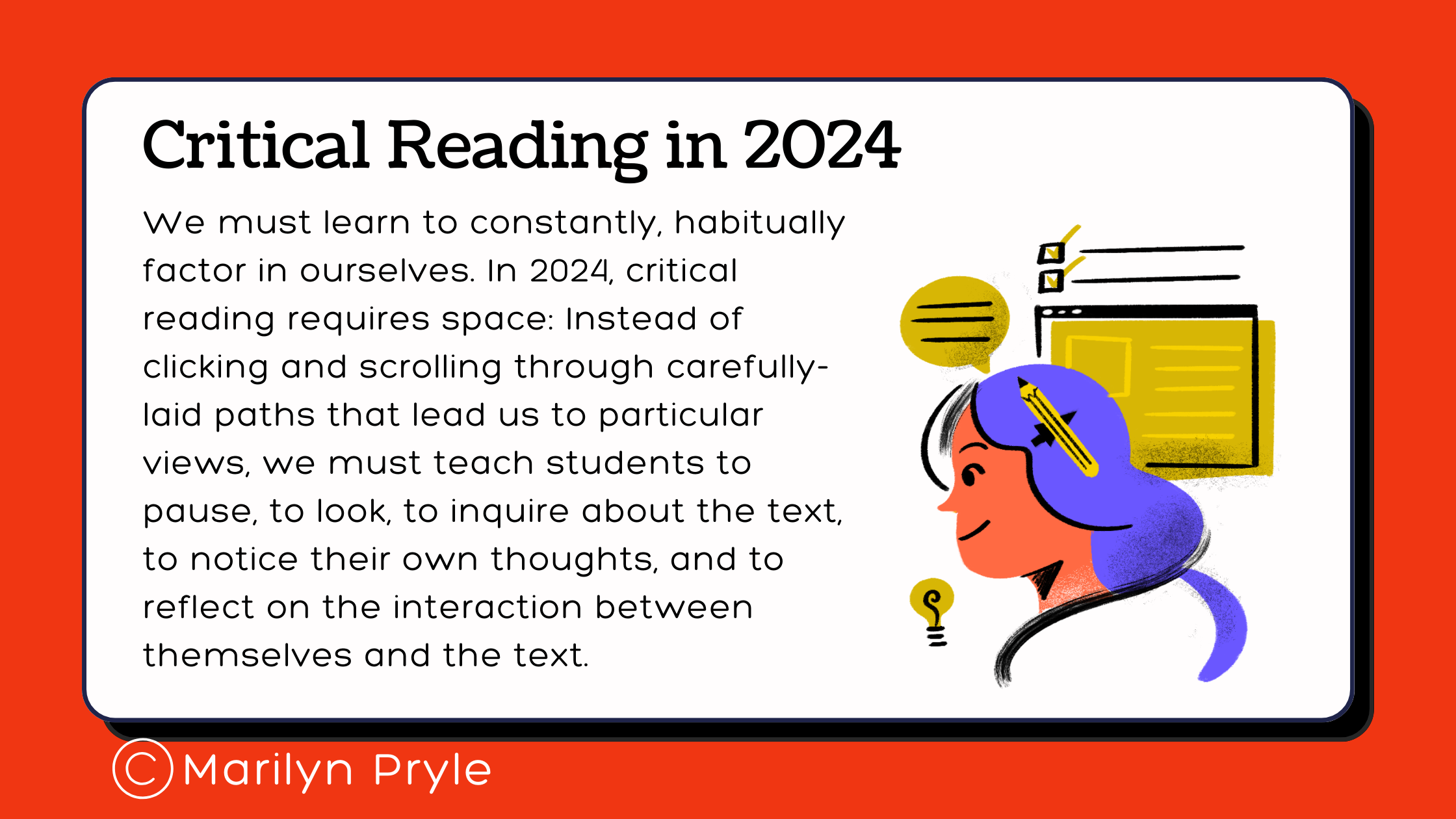
While we must always focus on an author’s purpose, craft, and voice, and the text’s mode, structure, and persuasive or aesthetic techniques, we must learn to constantly, habitually factor in ourselves. We must ask: How am I reacting? Where might this be coming from? What connections am I making? Do I feel moved to act, and why? Could someone else have a different reaction? And we must teach students to do this.
Most urgently for 2024, critical reading requires space: Instead of clicking and scrolling through carefully-laid paths that lead us to particular views, we must teach students to pause, to look, to inquire about the text, to notice their own thoughts, and to reflect on the interaction between themselves and the text. All of us need this space to preserve our understanding, self-control, compassion, connection, and humanity.

A framework for improving students' critical reading skills using five questions to ask any text.

